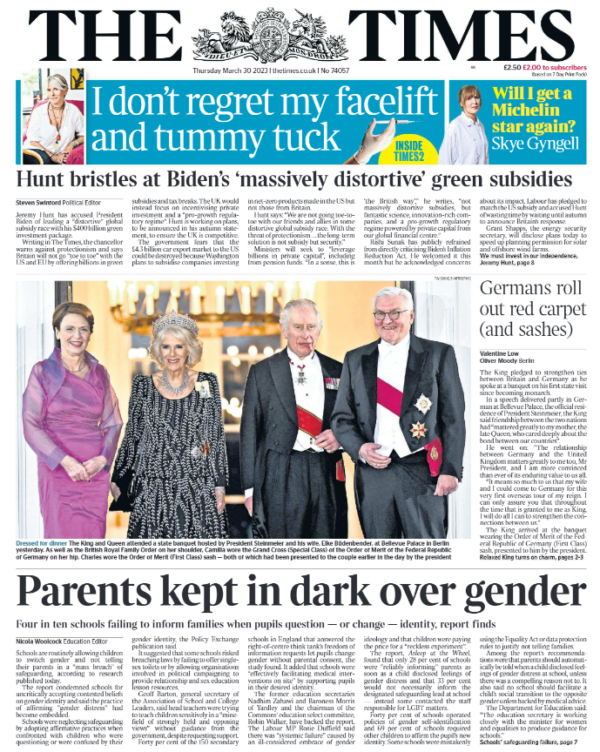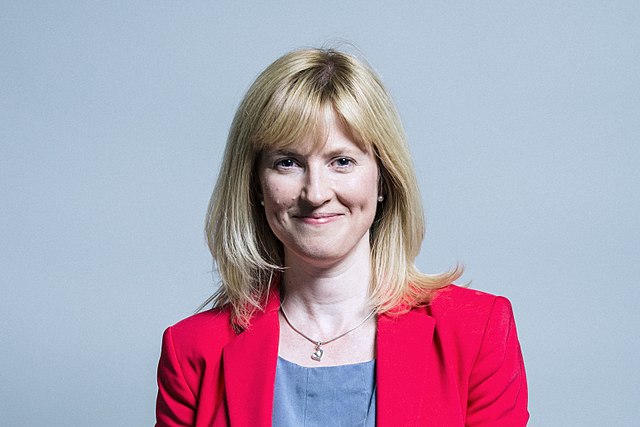Rosie Duffield has so many complaints about her transphobia that Labour allegedly has an email folder dedicated to her alone. With staffers reportedly instructed not to touch it, and Duffield working with Policy Exchange, questions need to be asked (and answered) about the Policy Exchange’s influence on Starmer and co.
Given Keir Starmer’s Terfy stance on trans rights that we’ve seen with his recent comments, Rosie Duffield’s transphobia being allowed to go unchallenged is understandable.
Transphobia is welcome in the Labour Party, heck, you could even go so far as to say it is encouraged these days.
So, it came as no surprise to see Duffield involved with the co-ordinated release of Policy Exchange’s, the right-wing think tank, latest nonsense about trans kids.
Duffield clearly had a heads up, which would, in normal times, have people asking why a right-wing outlet is working so closely with a so-called Labour MP, but that is not the main reason I am writing this.
Instead, I’m going to look at the article Duffield wrote for the right-wing Times as part of a release of the Policy Exchange’s ‘report’ that saw it on the front page of the Times, Mail, and Telegraph as well as being covered by the BBC and LBC.


This piece, as you can imagine, has many issues.
Assumptions
Duffield’s article assumes that affirmation as a one-size-fits-all solution has been discredited, and that gender identity beliefs are unscientific and contested. This certainly does not represent the views of experts and professionals in the field, who would argue, correctly, that gender identity is a complex and multifaceted issue that requires nuanced understanding and care.
Lack of balance
Her piece heavily criticises the approach of schools towards gender-distressed children, without providing alternative perspectives or considering the challenges schools may face in addressing these issues. It does not acknowledge that schools are trying to support and protect the well-being of students in a sensitive and caring manner.
Overgeneralisation
Duffield’s article suggests that Policy Exchange’s report demonstrates a mass breaching of safeguarding principles in schools. However, it does not provide sufficient context or information to support this claim. Individual cases are often not representative of all schools or their approaches to handling gender identity issues.
Sensationalism
The term “reckless experiment” in the headline implies that schools are actively experimenting with children’s lives, which is not an accurate representation of their intentions nor of the established history of trans care. This language seems to have one goal – to fuel unnecessary fear and misunderstanding among readers.
Conflict of interest
Rosie Duffield is the co-patron of Policy Exchange’s Biology Matters project, which indicates a clear bias in her perspective on this issue.
Who are the Policy Exchange?
Policy Exchange is a right-wing UK-based think tank that focuses on public policy research and analysis. Established in 2002, it is situated close to 55 Tufton Street in London where the LGB Alliance are based and PE has numerous connections
Policy Exchange covers a wide range of topics, including economics, education, energy, environment, health, housing, and security.
It seeks to influence public policy by providing what they claim is ‘evidence-based research’ and engaging with policymakers and stakeholders. It has worked closely with the Conservative Party throughout their time in government, often influencing policy directly.
Labour and Policy Exchange
Since being elected leader of the Labour Party, Keir Starmer has not only abandoned many of the pledges he made in order to win the vote, he has taken a stance in complete opposition to many of them.
As the Tories rage about ‘the small boats’ for instance, Starmer has joined in. Wherever a Tory policy appears, Labour are not far behind mimicking it.
Given that the likes of Duffield are clearly in bed with the Policy Exchange, who else at Labour is working to further their right-wing agenda?
Is this the reason behind Starmer’s flip flops?
These are questions people – namely journalists – should be trying to answer.
Alas, few, if any, seem to be even asking them.











